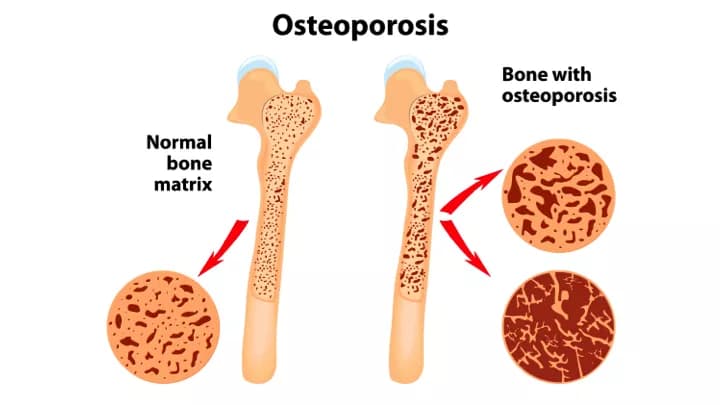
Protein Combination Improves Bone Regeneration, Study Shows
A UCLA research team has found a combination of proteins that could significantly improve clinical bone restoration. The findings may be a big step toward developing effective therapeutic treatments for bone skeletal defects, bone loss and osteoporosis.
The study, led by Dr. Kang Ting, professor and chair of the section of orthodontics at the UCLA School of Dentistry; Dr. Chia Soo, professor of plastic surgery and vice chair for research at the David Geffen School of Medicine at UCLA; and Dr. Aaron James, a fellow in surgical pathology, will appear as the lead article in the February print edition of the American Journal of Pathology.
Current treatments for bone skeletal defects utilize bone morphogenetic protein-2, or BMP2, an FDA-approved bone-healing protein. But the high concentrations needed to induce human bone formation may have serious side effects, including life-threatening cervical swelling and abnormal and inconsistent bone growth.
The same research team has conducted other studies on bone growth, including one that utilized a protein called NELL-1, which successfully increased bone formation and stimulated key factors for bone growth in multiple preclinical models.
In the new study, the team paired the NELL-1 protein, which Ting discovered, with BMP2. They found that the combination of the two proteins increased bone formation while inhibiting the formation of fat cells -- a negative side effect of BMP2, which encourages stem cells to form both bone and fat cells. By contrast, NELL-1 encourages stem cells to form bone cells instead of fat cells. Used together, the two proteins stimulate bone production more dramatically than either does alone.
"Before this study, large bone defects in patients were difficult to treat with BMP2 or other existing products available to surgeons," Ting said. "The combination of NELL-1 and BMP2 resulted in improved safety and efficacy of bone regeneration in animal models -- and may, one day, offer patients significantly better bone healing."
The study showed that NELL-1 works by activating the cellular signaling pathway that regulates whether a stem cell differentiates into a bone cell or a fat cell. It also showed that BMP2 can induce non-bone cells to form bone, with the potential risk for ectopic bone growth -- bone formation in undesirable locations.
The two proteins complement each other in that BMP2 helps to turn non-bone cells into bone-forming cells, and NELL-1 then increases the bone-forming ability of bone cells.
"In contrast to BMP2, the novel ability of NELL-1 to stimulate bone growth and repress the formation of fat may highlight new treatment approaches for osteoporosis and other therapies for bone loss," Soo said.
Previous and present studies demonstrate a strong rationale for combining NELL-1 with BMP2 to significantly improve the safety and efficacy of current bone regeneration options. The combination of NELL-1 and BMP2 may be particularly valuable for healing local bone defects in people who have osteoporosis or for those taking medications, such as steroids, that can inhibit bone growth.
NELL-1 is also currently in development as a single therapy for systemic treatment of osteoporosis. NELL-1, when given systemically, does not appear to induce ectopic bone. In contrast, because of its known capacity to induce unwanted bone, BMP2 may not be as appropriate for systemic administration.
"Dr. Ting and his research team have made a very valuable discovery for the field of bone regeneration," said Dr. No-Hee Park, dean of the UCLA School of Dentistry. "The researchers' findings have potential to help millions who suffer from osteoporosis and other bone defects."
The above post is reprinted from materials provided by University of California - Los Angeles. The original item was written by Brianna Aldrich. Note: Materials may be edited for content and length.
Disclaimer: DoveMed is not responsible for the adapted accuracy of news releases posted to DoveMed by contributing universities and institutions.
Primary Resource:
Shen, J., James, A. W., Zhang, X., Pang, S., Zara, J. N., Asatrian, G., ... & Lee, K. S. (2016). Novel Wnt Regulator NEL-Like Molecule-1 Antagonizes Adipogenesis and Augments Osteogenesis Induced by Bone Morphogenetic Protein 2. The American journal of pathology, 186(2), 419-434.
Related Articles
Test Your Knowledge
Asked by users
Related Centers
Related Specialties
Related Physicians
Related Procedures
Related Resources
Join DoveHubs
and connect with fellow professionals

0 Comments
Please log in to post a comment.